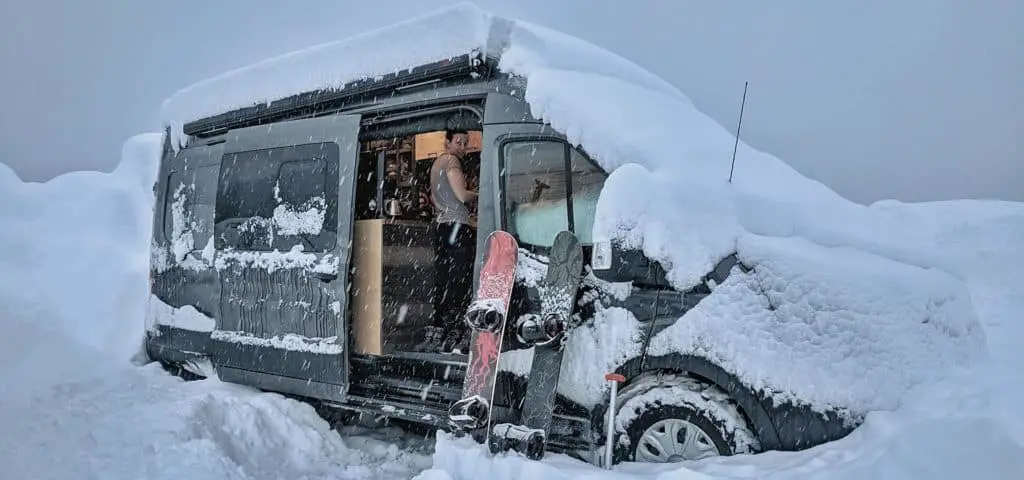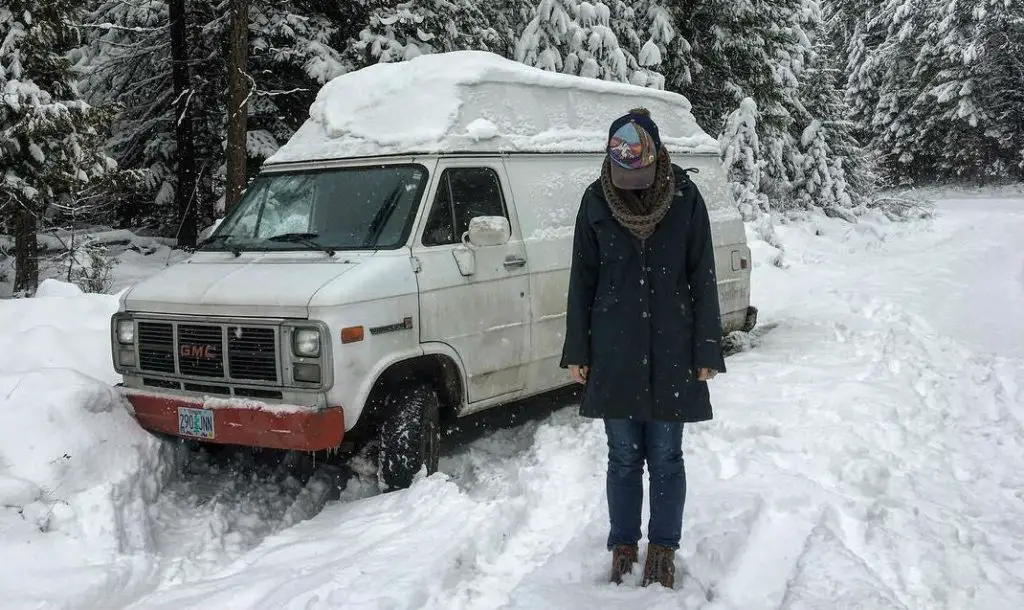When you first start learning about van life, one word seems to appear repetitively: insulation. An insulation system is a layer or more of protecting material fitted inside the van to protect you from the elements and mitigate the van’s internal temperature. But is it strictly necessary for you to invest in such a system before getting on the road?

Van life without insulation is possible, but it might not be suitable for long-term van dwellers or those traveling in harsh climates. Without insulation, the van’s internal temperature will match the external one more quickly, as heat and cold will dissipate rapidly.
Building your van is an extremely personal experience, and you will need to fit it to match your preferences. While many van lifers prefer to insulate their vans, you don’t necessarily need to, and here’s how.
The Considerations That Matter
Here is what van lifers should keep in mind when deciding upon insulation and temperature control systems:
- Without insulation, the internal temperature of your van will be similar to the external one
- Insulation slows down the naturally-occurring dissipation of heat and cold through windows and surfaces
- If you are parked under direct sunlight, and you don’t have insulation, the internal temperature of the van will feel 20-25℉ (5-10℃) hotter than the external temperature
- Your travel plans might need to change accordingly
Below, you will find the details you need to make an informed decision. Remember that you will need to weigh the disadvantages and benefits of not having an insulation system in your van depending on your personal circumstances.
Van Life Without Insulation: Who Is It For?
Whether you are building your van’s interiors from scratch or have found the perfect used one, deciding on practicalities such as insulation is one of the first steps for any van lifer. And while many travelers decide to invest in this system, it is not strictly necessary for all van lifers. Of course, this choice brings implications that are worth considering.
- Van lifers traveling within mild climates. If you are planning to travel only through mild climates, you might decide to skip the insulation process. Depending on your destination, you will only need to invest in adequate blankets, sleeping bags, equipment, clothes, and footwear.
- Occasional van dwellers. If you have invested in a van to enjoy some camping weekends with your family or friends, installing an insulation system might be unnecessary. Indeed, you are likely to pick relatively comfortable locations that allow you to enjoy nature in such a short amount of time. Additionally, in this case, an insulation system’s cost will outweigh the benefits you can draw from it.
- Short van trips. If you are not traveling far or for too long, insulation might be an extra comfort you can consider, especially if it does fit your budget. Undoubtedly, it can help you enjoy your days outdoors in a more comfortable environment. But, you can still live in the van even without this extra luxury.
Advantages of Building a Van Without Insulation
Having an insulation system fitted in your van can help you live your adventures more comfortably. However, van lifers should also keep in mind the advantages of not having one!
You Can Limit Expenses
Your van’s size and the type of insulation you have picked significantly influence this operation’s cost. However, as a reference, an insulation system for a medium-sized van can cost you $150 to $250 as a minimum if using foam boards such as Polyisocyanurate. However, if you decide on a higher-quality system, this can set you back between $300 and $600.
You Can Be on the Road Within Shorter Timeframes
Fitting an insulation system will require time and effort. And, if you have bought an old van, you will need to restructure it almost entirely to fit the system you need.
If you are going on a relatively short trip, it might be recommendable to do a trial run first, maybe in an area with a mild climate. This will give you valuable insights regarding whether you need or not an insulation system for your van.
You Won’t Have to Restructure a Used Van
Old vans used for van life can be an extremely good buy, especially if you don’t know how to restructure one yourself. They usually come with all the appliances and facilities you want to fit in yours while saving you a lot of valuable time.
However, if you also need to fit an insulation system, these vans can cause you to lose more time. Indeed, you will need to take the van’s internal structure apart to ensure that the insulation panels are fitted properly.
Drawbacks of Living a Van Without Insulation

Not having an insulation system that you can count on during winter or hot summer days can be an issue, especially if you are looking at long-term van-living. Here are the cons to this decision van lifers should consider.
It Is Not So Environmentally Friendly
Electricity, when living in a van, can be extremely expensive. Unlike most homes, your van won’t be connected to a reliable grid and, whatever your power system is, maintaining it and looking after it is crucial.
Most systems fitted in a van are also relying on natural elements – such as solar panels. So, if the weather has been cloudy or you have overestimated the power stored in your batteries, you might need to drive around to keep your appliances going.
Additionally, heaters and air conditioning systems can drain your batteries. So, an insulation system can help you make the most out of the energy you gathered from your
You Might Be Limited to Traveling in Certain Zones
If you are living full-time in your van without an insulation system, you might not be as free as you wish to be. Indeed, in most cases, a lack of insulation means that you will have to plan your trips accordingly to the weather and climate. More importantly, you will need to stay in climate zones that offer mild temperatures all year round.
Insulation Can Help Reduce Noise
If you have invested in a van, you know you will need to drive for hours. And a van can be noisy! Having an insulation system can work as a noise dampening or reduction system. This is ideal for protecting your hearing while driving or allow you to enjoy a decent night’s sleep in noisier campsites, parking lots, or other locations.
Alternatives to Insulation for Your Van
If you have decided against investing in an insulation system for your van, you will need to find alternative ways to regulate your home’s internal temperature on wheels. This is particularly important in locations where temperatures tend to drop at nighttime or significantly rise during the day.
Some of these methods include:
- Opt to insulate just the ceiling. If you don’t want to face the cost of a comprehensive insulation system, insulating just the ceiling can prevent direct sunlight from heating your van as much.
- Use heaters or aircon. Air conditioners and heaters can help you heat up or cool down your van in situations when the temperatures have started to become uncomfortable. However, van lifers should keep in mind that they can drain a van’s battery, and, without insulation, the heat will dissipate much more quickly.
- Park smartly. Depending on the external temperature, you might need to park away from direct sun, especially in summer or near a source of heat in winter.
If you are still unsure about the best choice for your van, the video below will offer you valuable insights:
Conclusion
Insulating your van can help you mitigate the internal temperature, get your air conditioner or heating system to be more efficient, and allows you to live in the van long-term. However, if you decide to stay within mild climates, plan according to the season, or live in your van for limited timeframes, it is possible to enjoy van life without insulating your van.
